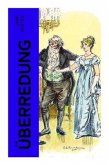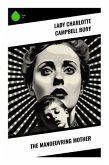Maria Edgeworth's "Helen" is a compelling exploration of female agency, social duty, and the negotiation of personal desire within the stricter confines of early 19th-century British society. Utilizing a blend of rich narrative and vivid characterization, Edgeworth employs a realist style that captures the complexities of her characters' inner lives while engaging deftly with contemporary social issues, such as class and gender roles. The novel, replete with psychological depth and moral inquiry, invites readers into the lives of its protagonists, particularly the spirited Helen, as they navigate both romantic entanglements and familial obligations, mirroring the tensions prevalent in the wider cultural discourse of her time. As a prominent figure of the early novel and an advocate for education and social reform, Maria Edgeworth's own experiences greatly influenced her writing. Born into an Anglo-Irish family, her insights into the socioeconomic issues of her era are reflected in her exploration of character motivations and societal expectations throughout "Helen." Edgeworth's extensive knowledge of literature and philosophy, combined with her commitment to challenging societal norms, positions her as a trailblazer in the development of the novel as a vehicle for social commentary. For readers interested in a nuanced analysis of gender and societal expectation, "Helen" serves as both a captivating narrative and a thoughtful critique of early 19th-century attitudes toward women. Edgeworth's eloquent prose and incisive observations make this work not only a significant contribution to feminist literature but also an engaging and enriching read for anyone interested in the complexities of human relationships and moral dilemmas.
Bitte wählen Sie Ihr Anliegen aus.
Rechnungen
Retourenschein anfordern
Bestellstatus
Storno








